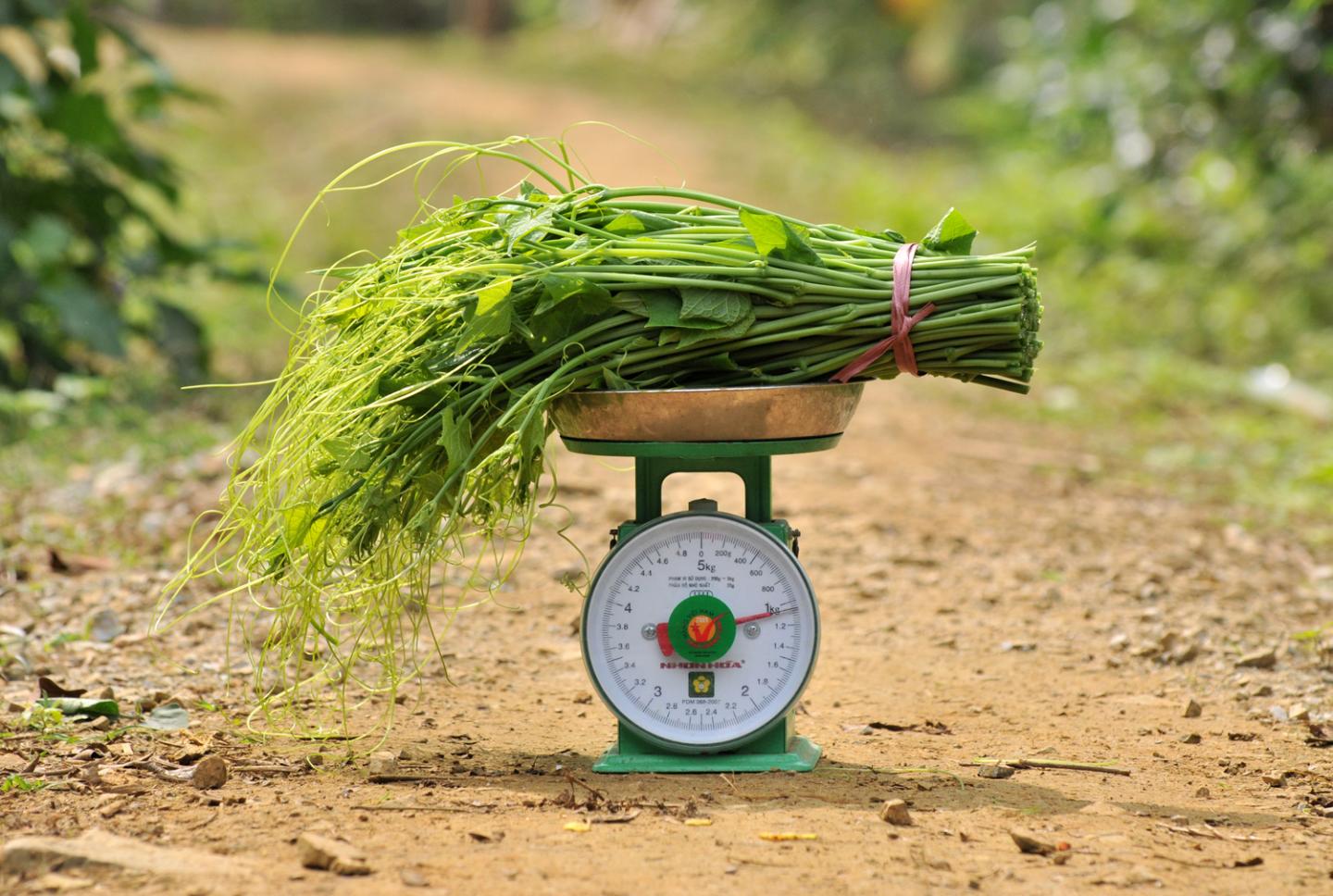Through cost-saving practices for coffee, rice, corn and livestock production, Vietnam can take steps to meet Paris Agreement commitments, says a study that highlights climate action potential for agriculture, forestry and land use in SE Asia

Credit: Georgina Smith / International Center for Tropical Agriculture
As nations look toward 2020, when they will take stock of their actions to reduce greenhouse gas emissions under the 2015 Paris Agreement, many are seeking ways to increase their nationally determined contributions, or NDCs, to global emissions reduction. Vietnam is one of the fortunate nations that has a suite of untapped options that, if undertaken, can save the country an estimated
$2.3 billion by 2030, substantially decrease emissions while increasing agricultural productivity, and benefit coastal and forest ecosystems.
These actions include agroforestry in coffee plantations, intermittently watering rice paddies instead of maintaining them permanently flooded, and providing cattle with improved feed. The study, which examines 41 measures to reduce emissions in the agriculture, forestry and other land use (AFOLU) sector in Vietnam, was published in April in Frontiers in Sustainable Food Systems by researchers at the International Center for Tropical Agriculture (CIAT) and colleagues.
“The study highlights the importance of the AFOLU sector to achieve the Paris Agreement goals especially in developing countries,” said Daniel Escobar Carbonari, the lead author and researcher for the CGIAR Research Program on Climate Change, Agriculture and Food Security at CIAT. “In fact, it shows that emissions-reductions actions in countries like Vietnam are profitable, good for the environment and can potentially increase farmer incomes.”
The researchers found that 14 AFOLU mitigation measures have a “negative marginal cost,” meaning they cost less than business-as-usual (BAU) practices, generally because they increase productivity or reduce inputs such as fertilizer or water. Other measures, including rainforest and mangrove restoration and protection, have the higher mitigation potential but have higher marginal costs. These costs, however, may be offset by the services provided by these rich ecosystems, said the researchers.
If the 41 AFOLU mitigation measures were enacted, they would eliminate or mop up 51 percent of Vietnam’s projected emissions in 2030, when the country would have a population of more than 100 million people.
“This shows that feasible changes in land use and agriculture have tremendous potential for Vietnam to mitigate its greenhouse gas emissions,” said Godefroy Grosjean, who leads CIAT’s Asia Climate Policy Hub and is a study co-author. “If coupled with a national strategy to reduce emissions from energy and transportation – and international support – AFOLU-based mitigation could play a key role in achieving ambitious NDC targets.”
“This study could be replicated in other Southeast Asian countries to guide their NDC targeting,” he added.
More ambitious targets
Globally, AFOLU accounts for almost 25 percent of annual greenhouse gas emissions but its importance in NDCs is often overshadowed by fossil fuel use, which accounts for the vast majority of
emissions. Under the more optimistic (yet feasible) projections made by the International Panel on Climate Change (IPCC), the AFOLU sector has the potential for “negative emissions,” meaning that it would absorb more greenhouse gas than it emits in an annual cycle.
The researchers said more research and better data on the true costs of some AFOLU measures would help Vietnam refine its NDCs, which they suggest can be more ambitious in light of the potential the measures have for meeting Paris Agreement targets. Improved data on forestry, which has especially high mitigation potential, would aid better projections of BAU-changing scenarios. More “costly” efforts such as mangrove protection and restoration would ultimately prove less expensive, if their positive contributions – including storm surge protection, prevention of erosion and providing nurseries for fish – were better understood in economic terms.
“Nevertheless there are important barriers, and better information is needed to improve the climate change policy in SEA countries,” said Escobar, who is also a researcher at Stockholm University and Colombia’s Ecotonos Foundation. “Vietnam’s NDCs have important challenges ahead. Reviewing some of the assumptions underlying the country’s emissions projections are important to achieving consistency with their mitigation options, and improving the likelihood of effective climate policy.”
Scaling up mitigation practices will be a challenge given the size of certain agricultural subsectors. Vietnam is the world’s second-largest producer of coffee and fifth largest of rice, by volume. Climate change and increasing domestic demand for food and animal products may also put pressure on natural landscapes.
“
The revision process of national NDCs is crucial to reach the goals set under the Paris Agreement,” said Grosjean. “This study highlights the importance of constant data refinement regarding the mitigation options considered in the NDCs, especially for the AFOLU sectors of developing countries, where data scarcity is more pronounced.”
###
Funders and collaborators
This work was implemented as part of the CGIAR Research Program on Climate Change, Agriculture and Food Security (CCAFS), which is carried out with support from the CGIAR Trust Fund and through bilateral funding agreements. For details please visit https:/
Media Contact
Sean Mattson
[email protected]
Related Journal Article
http://dx.




